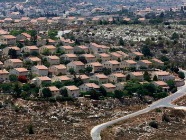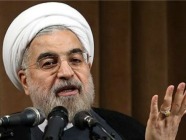Since the start of the new Israeli-Palestinian peace effort backed by Secretary Kerry, it feels like every day has seen news about new settlement approvals, tenders, planning, benefits, etc. In truth, it hasn't been quite every day - but close to it. The settlement floodgates have been opened, and opened wide, especially in East Jerusalem. This timeline is intended not to provide comprehensive details of each new settlement-related development, but to track these developments across time and provide links to additional resources. Also, keep in mind that new developments can be viewed on the map through APN's "Facts on the Ground" Map App.
 Americans for Peace Now (APN) today harshly condemned the government of Israel's recent actions to
move forward with new settlement approvals and tenders in both East Jerusalem and the West Bank. APN urged
President Obama and Secretary of State Kerry to engage vigorously to convince Netanyahu to roll back these
reckless, destructive decisions.
Americans for Peace Now (APN) today harshly condemned the government of Israel's recent actions to
move forward with new settlement approvals and tenders in both East Jerusalem and the West Bank. APN urged
President Obama and Secretary of State Kerry to engage vigorously to convince Netanyahu to roll back these
reckless, destructive decisions.
APN President and CEO Debra DeLee commented:
"Yesterday's announcement of tenders for 1200 new units in settlements in the West Bank and East Jerusalem was an extraordinary sign of contempt for President Abbas and for new U.S. special Middle East peace envoy Martin Indyk, who arrived in Israel this week to restart talks. It came on the heels of last week's outrageous news of a decision to press ahead with almost 900 new settlement units. Today's announcement of the approval of nearly 1000 additional settlement units in East Jerusalem appears to reflect nothing short of deliberate effort to extinguish any hopes of success for the Kerry-backed peace effort before the second round of talks even starts.

Anyone familiar with the history of Israeli-Palestinian peacemaking can be forgiven for viewing new Israeli-Palestinian negotiations with a certain degree of skepticism, in large part fueled by concern that settlements will, once again, be used to undermine the chances for achieving peace.
Anyone familiar with the history of Israeli-Palestinian peacemaking can be forgiven for viewing new Israeli-Palestinian negotiations with a certain degree of skepticism, in large part fueled by concern that settlements will, once again, be used to undermine the chances for achieving peace.
Recent settlement-related developments warrant such concern. Clearly, some are happy to use settlements to kill the new peace initiative, perhaps hoping this will be the final nail in the coffin of the two-state solution. If they succeed, there will be opportunities aplenty for hardliners and cynics alike to smirk and say, "We told you so," but they'll be smirking into the abyss. Failure of this latest peace effort won't create an alternative to the two-state solution or halt the march of settlements. It will only play into the hands of zero-sum ideologues on both sides, with devastating implications for everyone else.
(This is Part 2 of an unprecedented two-part Round-Up. Please see Part 1for bills/resolutions/letters and coverage of HR 850, the Jerusalem passport case, CUFI on the Hill, Middle East issues in the Defense Approps process, Members on the Record, and Hearings/briefings).
1. Senate
FY14 ForOps Process Gets Underway
2. More
On House FY14 ForOps (Report Language)
1. Senate FY14 ForOps Process Gets Underway
As noted in Part 1 of this week's Round-Up, on 7/23 the Senate ForOps Subcommittee marked up the draft FY14 ForOps Approps bill (webcasthere). On 7/25, the full committee marked up the bill (webcast here) and reported it out of committee as S.1372, with a written report, No. 113-81. The full committee press release on the approval of the bill is availablehere. POMED's summary of the bill and the accompanying report is available here. Below are full details of the Middle East provisions in the bill.

On a visit to London, APN's Lara Friedman was interviewed by Bicom, the Britain-Israel Communications
and Research Center, about the resumption of Israeli-Palestinian peace talks.
BBC News (July 29, 2013)
Provides brief historical snapshots of each of the main Arab-Israeli and Israeli-Palestinian peace proposals since
1967. Concluding with the 2010 peace talks, the timeline also features links to relevant official documents.
Read More >

Iran's election of Hassan Rouhani, a former nuclear negotiator who promised greater nuclear transparency and to pursue "peace and reconciliation" with the outside world, presents the best opportunity for serious progress on diplomatic negotiations with Iran in over eight years.

People are still debating whether the recent ejection of the elected government in Egypt meets the definition of a "coup." This debate has arisen because U.S. law requires a suspension of aid to a country whose democratically-elected government has been ousted following military intervention -- a condition that seems to clearly apply in this case.
1. Bills, Resolutions & Letters
2. Congress Responds (with Some Confusion) to Egypt
3. House GOP Love-in with Settler Leader?
4. Hearings/Briefings
5. Members on the Record
6. From the Press/Blogs